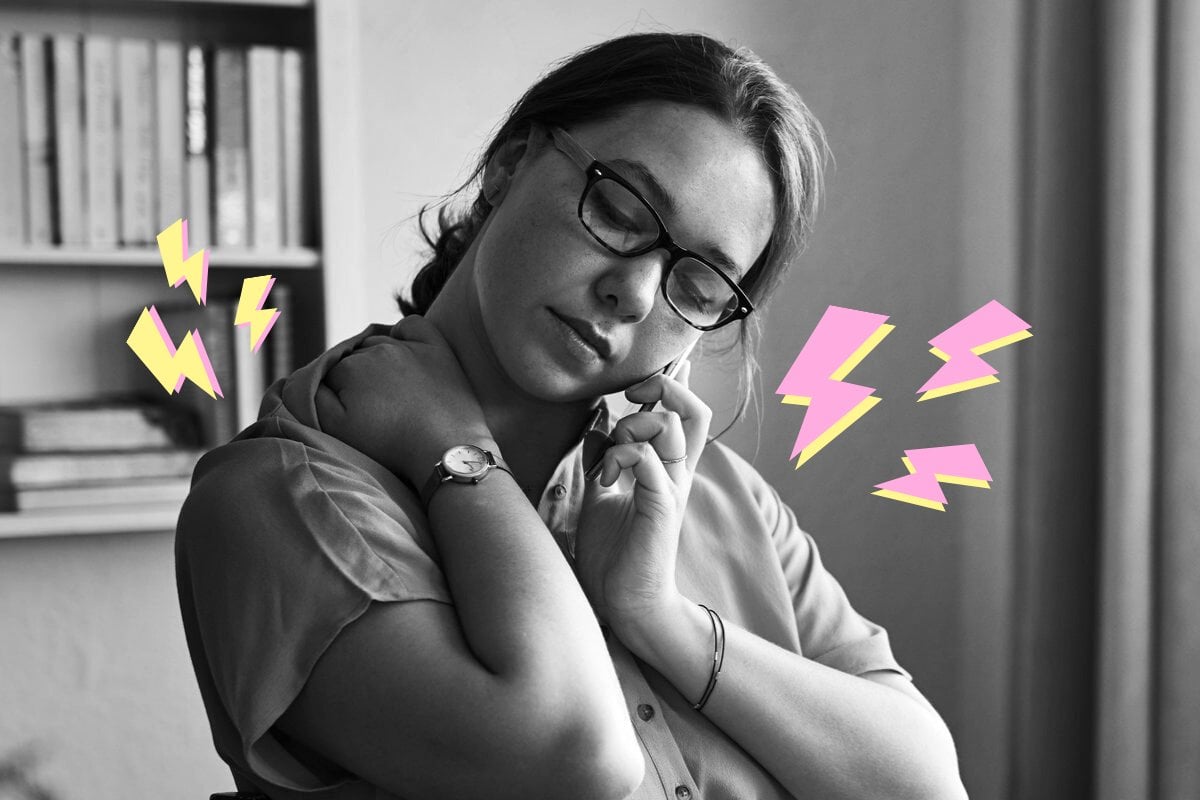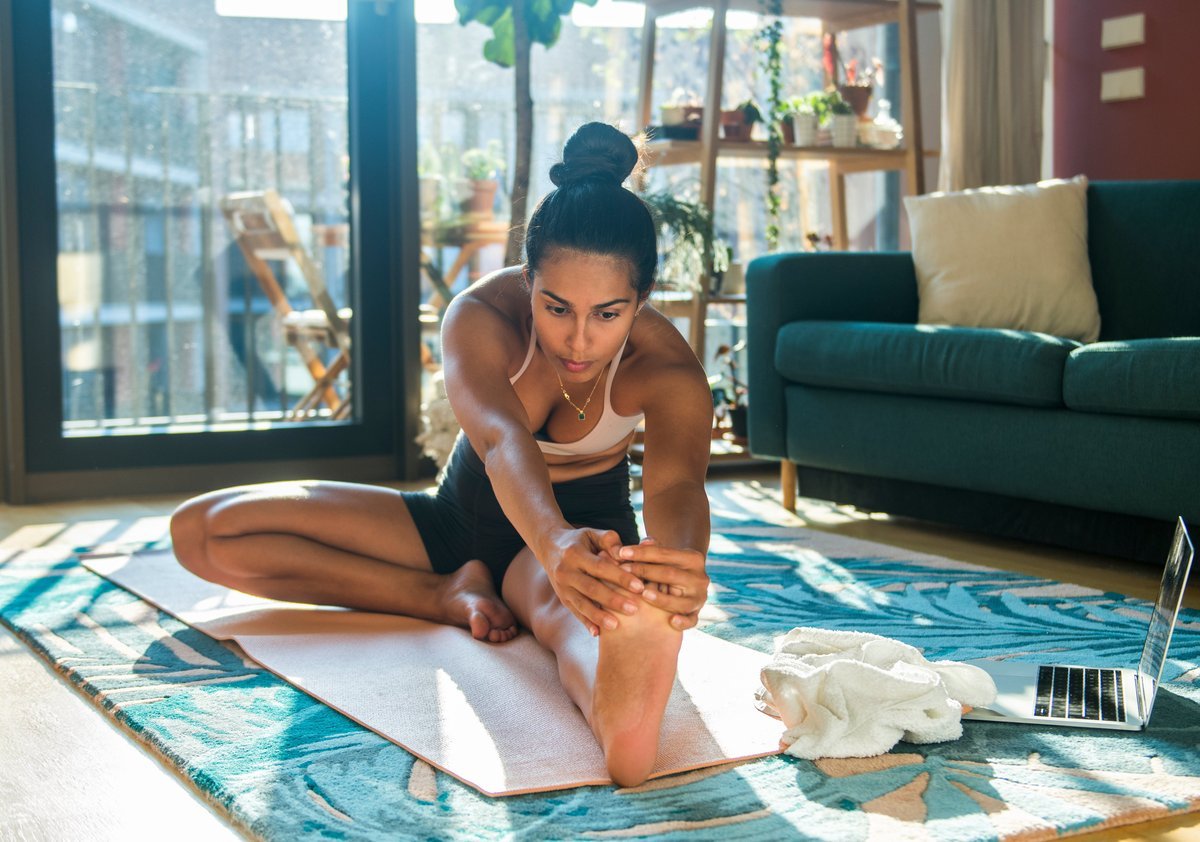
Look, we've all got A LOT of stuff going on. Life can be stressful AF. And sometimes your body just wants to NOPE itself right outta there. And judging by your poor little curled-up shoulders, you know exactly what we're talking about.
Whether you're having a s**t time at work, you're stuck in a weird social situation, having relationship qualms or are just stressed as hell over General Life Things, feeling anxious in 2021 can be seriously hard to avoid.
And when it kicks in, hoo boy. The symptoms are about as enjoyable as a swift kick to the gut.
Like, your body *literally* goes into fight-or-flight mode, which is basically your body’s way of hyping itself up to take on a physical threat that you'll need to fight off or run away from.
NBD.
Part of this response (whether the threat is physical or not) is that your body starts releasing all these nasty ass stress hormones (lookin' at you, adrenaline and cortisol), thinking it's doing you a solid and getting rid of all the extra baggage that's make you feel like utter poo.
But... it kind of just ends up making everything a whole lot worse. Cute!
Watch: Six soothing solutions to de-stress. Post continues below.
The release of these hormones just ends up creating a whole heap of muscle tension and adds to your existing cloud of anxiety/stress, often making you feel a lot worse.


